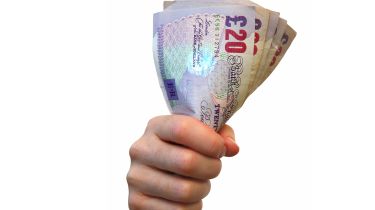Buying a car with cash or a credit card
Buying a car with cash or a credit card sounds simple, but there are plenty of pitfalls

- For: Cash is easy, and can save money over list price. A credit card with 0% interest is in effect an interest-free loan.
- Against: You'll need enough money in the bank, or a credit card with a high enough limit. Interest rates can be high once the card's 0% interest period runs out.
The most straightforward way to pay for a car, and the one with no financial ties once you've taken delivery of the car, is by handing over a wad of cash. In reality, this is only really going to be viable for buyers looking at the cheapest of used cars - these days there are only a handful of new cars that dip under the £10k barrier, and with 15% of Britons having no savings at all, it's clear that this option isn't goign to be the most popular.
• Cars that hold their value best
If you can buy a car outright, it's unlikely that you'll be able to turn up at a car dealer, plonk the cash on the table and walk away with the keys. Modern dealerships are geared towards finance, and they're unlikely to be able to handle your bundle of £50s without a special trip to the bank. More likely is that you can write a cheque (although this is becoming an obsolete payment method) or use a debit card. With the latter, make sure that you have a clear transaction limit (many cards don't), or forewarn your bank of your transaction so that the purchase isn't prevented by the bank's automatic anti-fraud measures.
A better use of cash that you've saved up is to put that towards as much of the car's deposit as possible if you're buying on finance. And if you go for a finance offer that has zero per cent APR repayments on the loan, you're essentially getting behind the wheel of the car you want before you've saved up the full amount you need to buy it. Using cash towards your deposit will help you keep the monthly repayments in check, too.
Credit cards
Even if your credit limit allows it, many dealerships don’t allow you to fully pay for a car on credit card. Paying the deposit by credit card is normally possible, however, and will provide extra protection for a vehicle costing less than £30,000. You can ask the card provider for a refund of the full price if the car is faulty or arrives in the wrong specification.
If you have a 0% interest rate on your credit card and a high enough credit limit to pay for a car, then financing using a credit card could be viable.
First, you need to be certain that you can pay the car off within the card's 0% interest period, or that you will be able to transfer the cost of the car to another 0% interest card before the original card's high interest rate kicks in. Some credit cards offer up to 48 months interest-free credit on balance transfers for a percentage charge of the transfer amount, but always check the small print on balance transfer conditions with any credit card you may be looking at.
It's a juggling act, but if you can manage a zero per cent credit card and successfully transfer the balance from 0% card to 0% card, then you're effectively borrowing money for free. The initial challenge is to find a card with a big enough credit limit to buy a car in the first place and then managing that balance to get the 0% interest rate. Also, be warned that some car dealers don't take credit cards. All in all, it is feasible, but quite time-consuming in practice.
Another option and far more practical is to use a credit card to pay the deposit on a car. This gives you the legal protection that comes with credit card purchases and means that your credit card company might be able to help you out if there's a dispute with the dealership further down the line. You could also factor in monthly repayments to get the balance down to zero in the same time as the car repayments, bearing in mind when the 0% period ends on your credit card and when you should transfer to a new 0% card.
Click the links below or on the top left of this page to get full guides on each of the key car finance options…
How to pay for your new car
Find a car with the experts



